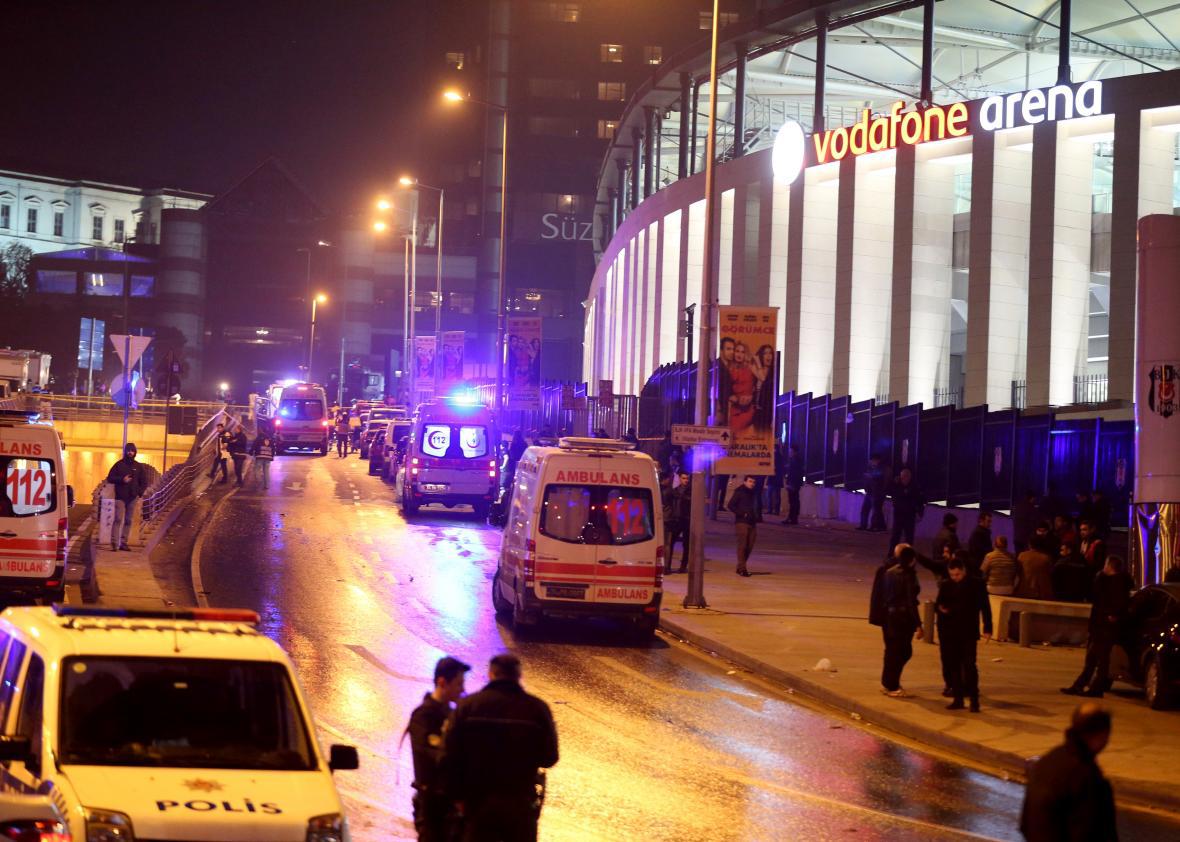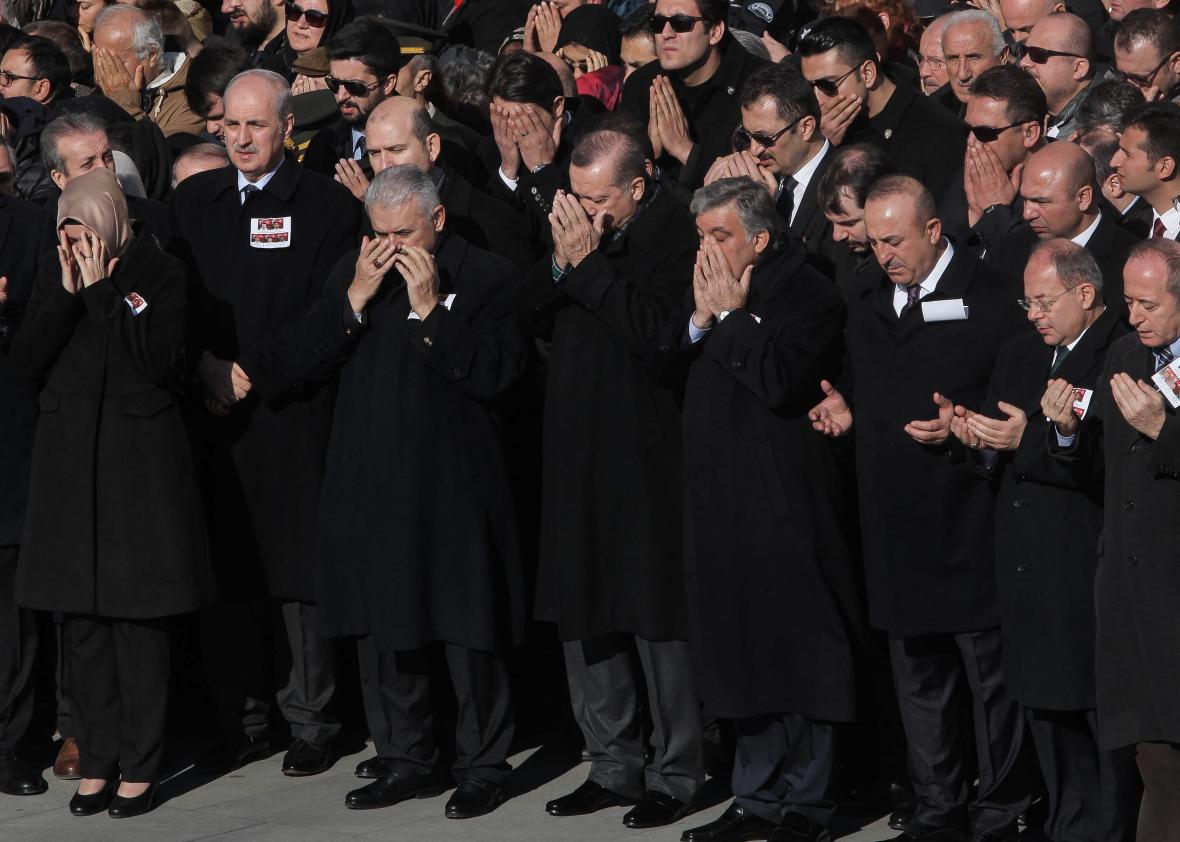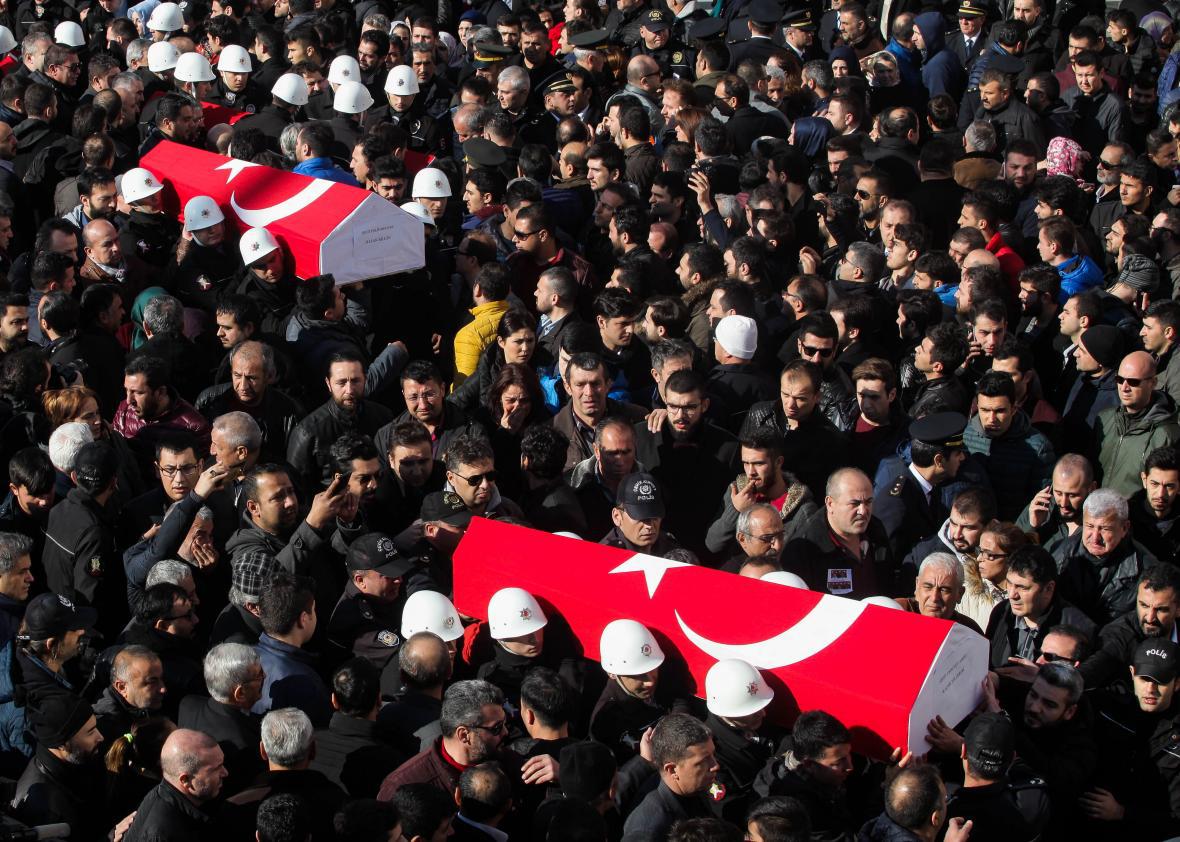Turkey declared a national day of mourning Sunday as it began to bury the dead from the twin blasts that struck at the heart of Istanbul late Saturday, killing 38 people and injuring 155 others. Police officers appeared to be the target of the explosions as 30 of them, along with seven civilians and an unidentified person, were killed, Turkish Interior Minister Suleyman Soylu said. The first explosion was the largest and took place at around 10:30 p.m., when a vehicle detonated via remote control in an area where riot police gathered outside the Vodafone Arena, also known as the Beşiktaş Stadium. Then, a suicide bomber detonated explosives as police surrounded him in nearby Macka Park. The attacks took place around two hours after a heavily attended match between soccer teams Beşiktaş and Bursaspor.
No one claimed responsibility for the terror attack but Soylu and other officials were quick to blame the outlawed Kurdistan Workers Party (PKK). Deputy Prime Minister Numan Kurtulmus agreed telling CNN Turk that “arrows point to the PKK.” There were reports that 13 people had been arrested, although their connection to the blasts remains unclear. “Sooner or later, we will have our vengeance. This blood will not be left on the ground, no matter what the price, what the cost,” Soylu said at a funeral for five of the law enforcement officers who were killed.

Getty Images
The government official also harshly criticized Kurdish militants and those who defend the PKK. “To those trying to defend the perpetrators from podiums, over the media or internet, and trying to make up excuses,” he said. “There is no excuse for this … Know this: the blade of the state stretches far and wide.” The warnings come as Turkey has detained lots of pro-Kurdish politicians in a move that has coincided with a huge purge on alleged sympathizers of the failed July 15 coup, leading to thousands of arrests and tens of thousands of firings from state jobs.
Even as the government was quick to blame the PKK, many point out that the attack also came a week after ISIS called on followers to target “the security, military, economic, and media establishment” in Turkey. The two biggest attacks in Turkey in recent months, including the one that killed 45 at Istanbul’s Ataturk airport in June, were carried out by ISIS. Regardless, the attack is likely to be used by Turkish President Recep Tayyip Erdogan to justify a power grab, notes the Independent’s Patrick Cockburn. Mere hours before the attack, Turkey’s ruling Justice and Development Party (AKP) presented a bill that would grant Erdogan more power.

Daghan Kozanoglu/Getty Images
